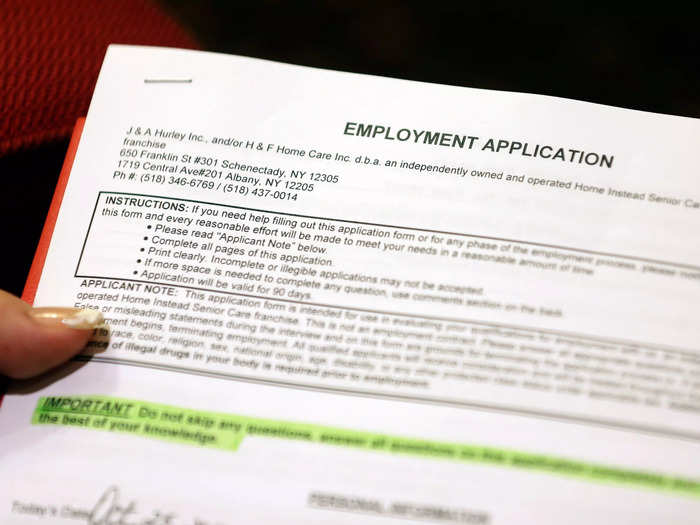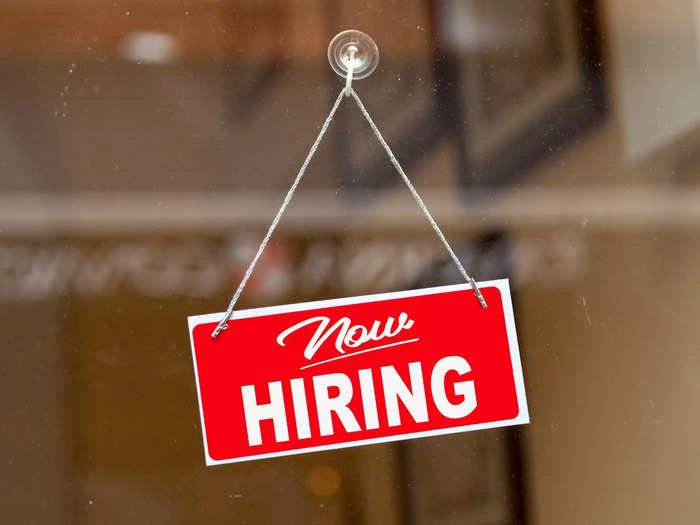From 'quiet hiring' to 'rage applying,' here's the top workplace buzzwords of 2023 – and what they mean
Lakshmi Varanasi,Sarah Jackson,Samantha Delouya

- Attitudes towards work are changing as employees adjust to a post-pandemic normal.
- There are now a slew of new terms to describe work, from "rage applying" to "Bare Minimum Monday."
The year is still young but there's already plenty of new workplace trends. Here are some of the biggest.

Copycat layoffs

"Copycat layoffs" is the idea that companies are being influenced by one another as they cut jobs.
Since the start of 2023, numerous tech companies have laid off workers, including Google, Microsoft, and Zoom, picking up on job cuts that started in the second half of 2022.
Jeffrey Pfeffer, a professor at Stanford's Graduate School of Business, attributed the layoffs to "copycat behavior" in an interview with Stanford News in December.
"A lot of this is just imitation," Pfeffer told Insider. "We see one company doing something and everybody follows. They followed on the way up; companies were hiring, so everybody decided to hire. Now, companies are laying off, and everybody decided to follow each other and lay people off."
Two months into 2023, the term "copycat layoffs" may have earned its place as a workplace buzzword, according to Kathryn Minshew, founder and CEO of The Muse, a Gen Z and millennial-focused job search platform.
"It's difficult without being inside those companies to really point a finger at why these tech companies are shutting people," Minshew said. "But when many companies in an industry make the same decision in a short period of time it certainly starts to look like they're being influenced by each other."
Rage Applying

Rage applying is the practice of mass applying for jobs fueled by feelings of unhappiness at work. And it seems it has the potential to pay off.
After being passed over for a promotion, Jordan Smith— a 28-year-old working in the music industry in LA— "rage-applied" for five jobs and landed a better-paying role within a week.
However, rage applying might not be the best approach for everyone. Career coach Kelsey Wat advises against conducting a job search from an emotional place of "fear, resentment, or burnout."
"I think it's helpful for job seekers to get more clarity and be more centered and grounded in what they want ... so they can develop a job search strategy that is aligned with their values," she said.
Quiet Hiring

As companies cut back on hiring amid recession fears, "quiet hiring" – focusing on internal talent without increasing headcount – has emerged as a new buzzy workplace term.
It was listed as one of nine workplace trends to watch in 2023 by Gartner, a research and consulting firm, and it describes a way to acquire new talent without hiring new people through internal development.
Gartner predicts that employers will offer "upskilling opportunities" for existing employees to meet organizational needs.
"This is a trend that's helpful for employees also," said Toni Frana, lead career expert at FlexJobs. "We know that employees like professional development opportunities ... like the opportunity to upskill and increase their bandwidth and further their knowledge in terms of skills they acquire in a role."
Wat said it's important for prospective employees to gauge an employer's willingness to provide internal growth opportunities during the job interview process.
"It's really important to ask how success is measured in a role, and when you're interviewing, asking questions about what previous people in the role are doing now so that you have a sense of whether there is mobility in the company," she said.
Resenteeism

As major tech companies continue laying off significant numbers of workers, another term has popped up: resenteeism. It describes the act of staying in an unsatisfying job due to a perceived lack of options, even as resentment grows.
While it sounds similar to quiet quitting, resenteeism takes things a step further. Rather than avoiding extra work under the radar, employees experiencing resenteeism aren't concealing their growing bitterness.
"We're being laid off, losing wages to inflation, and suffering through a pandemic that changed the way the world operates. The suits don't care about us. Why should we?" one Twitter user said.
Frana said in some cases, employees should try to raise workplace issues with their managers before dissatisfaction festers.
"I certainly think what a lot of things boil down to is communication and having conversations with your manager about potential opportunities or shifts in the type of work that you might be doing," she said. "You can oftentimes get to the heart of a matter, and you might be able to make some direct changes."
Bare Minimum Monday

Think of Bare Minimum Monday like quiet quitting, but specifically for the start of the week.
TikToker Marisa Jo popularized the term, which describes a way to resist the Sunday scaries and the pressure many people feel to hit the ground running full-speed when they return to work again on Monday.
"The second I got rid of the pressure and allowed myself to have whatever kind of day unfolded, I was able to do stuff," she said in a TikTok.
In a video documenting one of her BMMs, Jo goes through activities like journaling, her skincare routine, and making progress on a creative project before beginning work, which she notes "doesn't start until noon" on Bare Minimum Mondays.
Chaotic Working

Chaotic working, aka "malicious compliance," involves employees using their position at work to help customers or clients at the employer's expense.
Though it often entails breaking some rules, workers may do it without fear of repercussion because they're simply fed up with their job, employer, or the general state of work.
The practice may become more popular in 2023 as anti-work sentiments grow.
A TikTok from user The Speech Prof says examples of chaotic working include giving customers employee discounts or upsizing their food order for free.
Kelsey Wat says workers engaging in the practice should be aware that they may be jeopardizing their jobs: "I would be concerned that's not going to end well."
Shift Shock

How many people have started a job with excitement only to realize it wasn't what they expected? According to a 2022 study by The Muse, 72% of about 2,500 respondents have had that experience.
Minshew terms this "shift shock," though the phenomenon can go by other names as well, such as new-hires' remorse.
While Minshew said this experience isn't new, "workers today are more likely to leave if they're confronted with shock."
When she was working at McKinsey 15 years ago, Minshew said she was told that leaving a job after less than two years would be a "black mark" on her resume. Now, things are different.
She said that 80% of survey respondents said it was acceptable to leave a new job in six months if it didn't live up to expectations.
Boomerang Employees

With the growing number of layoffs — especially across the tech and media industries — some workers are returning to familiar ground.
They're known as "boomerang employees," who go back to their old employers when times get tough and even score big raises.
While the term itself isn't new, it's picking up speed in 2023.
"Their presence and impact have gained recognition as a result of the Great Resignation, quiet quitting, rage applying, and recent tech layoffs," tech career coach Kyle Elliott told Insider. "Some workers are returning to previous employers after a stint at a competitor, whiles others are being laid off and then rehired at the same company."
Career Cushioning

Some workers are dusting off their resumes and shoring up their skills to protect themselves in case they are laid off.
This trend, which involves workers starting to look for other jobs while still in their current roles, is often called "career cushioning," or "recession-proofing." The term started to take off late last year and is on the rise as many companies announce surprise job cuts.
"Given the fact that we've had high inflation, we're potentially moving into more of a recession, I think that if you have concerns about layoffs, or you're in an industry that is affected by layoffs, I think it's really, really healthy and a good idea to make sure that you are networking, make sure that you are prepared for anything that can happen," Wat said.
"I think it's a good strategy for everybody."
Popular Right Now
Popular Keywords
Advertisement